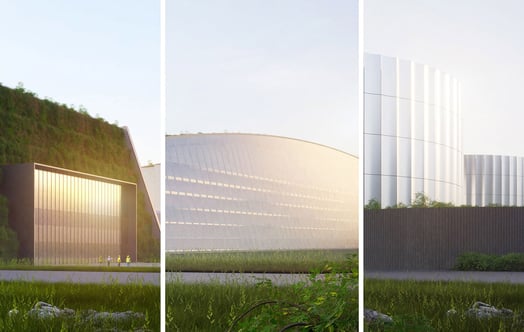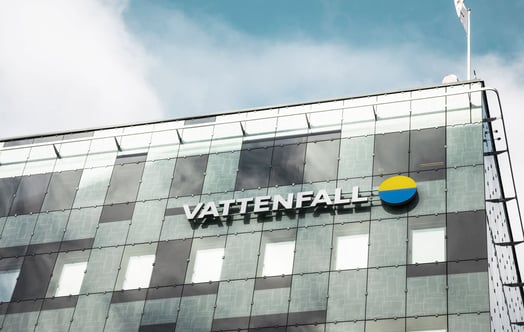Update June 2023
On 4 April 2023, the Dutch Board of Appeal for Business (College van Beroep voor het Bedrijfsleven - CBB) issued a ruling on the appeal. From this ruling Vattenfall concludes that it should have indicated that the accounting firm mentioned below only assessed the internal investigation previously carried out by Vattenfall on procedural grounds (the manner of handling complaints) and not on substantive grounds.
Update May 2021
On 18 February 2020, a report was published by the House for Whistleblowers in the Netherlands. The investigation focused on the treatment of two employees after reporting suspected incidents. The House for Whistleblowers concluded in its report that the employees were treated adversely as a result of their reporting. Vattenfall respects the House's conclusions and is willing to improve and learn lessons for the future at all times. The suspected incidents were not part of the House's investigation. Vattenfall emphasizes that the allegations made by the whistleblowers have been thoroughly investigated in Germany and that no violations of the law have been identified.
No benefit
Media suggest that Siemens was benefited by hundreds of millions of euros in a tender procedure in Germany. Vattenfall strongly rejects such allegations. The tender was never awarded to Siemens, and the power plant for which this tender procedure was launched was ultimately not built.
Accountants Chamber in the Netherlands 12 February 2021
The comment below dated 8 February 2019 indicates that the outcome and quality of the internal investigations by Vattenfall into the allegations have been validated by an independent forensic accounting firm. On 12 February 2021, the Accountants Chamber in the Netherlands concluded that this external investigation by the forensic accounting firm contains flaws on certain points. An appeal by the relevant investigator is currently pending. Vattenfall has taken note of the Accountants Chamber’s decision and awaits the outcome of the appeal.
Various media, including NRC in the Netherlands, Der Spiegel in Germany and Dagens Nyheter in Sweden, publish claims made by whistleblowers within Vattenfall. Vattenfall strongly rejects the accusations made. These are the answers provided to the three newspapers as an answer to their written questions.
Vattenfall finds it essential that all its employees feel valued, protected and free to report any suspected irregularities. We take reports on suspected irregularities extremely seriously and have clear procedures for reporting violations of our code of conduct and/or laws and regulations. In addition to this kind of reporting, it is possible to report to an external independent Ombudsman in the respective country where we operate. Vattenfall takes resolute action, if violations are detected.
Vattenfall encourages every employee to report violations of the law and/or the code of conduct or any suspicion of this. Every report is handled in accordance with the procedures, also in the matters referred to in media. Any form of mistreatment towards our employees as a result of reporting irregularities is strictly prohibited within our organization.
Two employees of Vattenfall have requested the House for Whistleblowers in the Netherlands to investigate whether they were adversely treated as a result of reporting suspected incidents. This investigation has been on-going since April 2017 and Vattenfall provides its full cooperation. Vattenfall finds it essential that all its employees feel valued, protected and free to report any suspected irregularities.
The House for Whistleblowers does not look into the alleged incidents reported by these employees. These reports have been investigated multiple times, showed no violation of law and, the results thereof, validated by a reputable forensic accounting firm.
Neither these reports nor the other questions posed by you are new to Vattenfall. As always, if new facts or information would come to our knowledge, we always act swiftly and resolute to investigate according to our routines and our code of conduct.
As the investigation by the House of Whistleblowers is still on-going, Vattenfall will respect this process and the confidentiality that the House requested and will therefore limit itself to the following answer. Also, Vattenfall will not comment on matters concerning individuals for privacy reasons.
Whistleblowing
In 2013 and 2014, suspected violations of law and the code of conduct were reported. These reports were handled in accordance with the applicable Vattenfall procedures. On the basis of multiple investigations, including by our Internal Audit department, Vattenfall has concluded that no such reported violations of law occurred. The outcome and quality of these internal investigations have been validated by a reputable independent forensic accounting firm.
Vattenfall has been continuously supporting these employees within the organization. We would like to add that, in proceedings lodged against Nuon at both the appeals committee and the Amsterdam District Court in 2016, neither of these bodies have found any evidence of such mistreatment. In 2018, Vattenfall requested external independent investigators to research whether mistreatment has taken place. These independent investigators concluded that no mistreatment had taken place.
The memo
The memo referred to in media is an early preliminary draft. As part of normal audit practice, the draft report was discussed with relevant management and it turned out not all relevant facts had been timely shared with Internal Audit. Based on the new information made available to Internal Audit, Internal Audit updated and finalized the report. In its final report, Internal Audit found that Vattenfall in the tender in question should have motivated and reported an applicable exemption under EU tender law. Based on the investigation, Internal Audit and management agreed on changes of internal procedures which since have been fully implemented and followed up.
Siemens
In the articles published in media it is suggested that Siemens is being unduly preferred by Vattenfall over other bidders in tender processes. Vattenfall rejects such notion. No such preferential treatment has been established in the investigations carried out as a result of reports of suspected irregularities by employees mentioned in your questions. The facts also contradict such allegation;
- in the past decade, Vattenfall tendered for eight gas-fired power plants. Awarded projects were based on international tenders and the outcome of predefined tender evaluation criteria. Three of these projects were awarded to Siemens; and
- Siemens won the TwinGo tender for the Amsterdam and Diemen plants in an EU tender process. Out of four competing bids the Siemens bid scored best based on the pre-determined selection criteria. No formal complaints were filed by the competitors to challenge the award;
- Marzahn was awarded to Siemens as the outcome of a tender process (though EU procurement law did not anymore apply in Germany);
- neither the Lichterfelde nor the Hamburg/Wedel projects were awarded to Siemens.
With respect to the meeting in May 2013 with Siemens, Vattenfall notes that it meets with suppliers on an on-going basis. Vattenfall firmly rejects any notion that the meeting you refer to or any other meeting with suppliers infringe any applicable law.
Wedel plant and the relation with Hamburg City Council
In November 2011, Vattenfall and the City of Hamburg signed a contract by which the City acquired 25.1 percent of the district heating business and the electricity grid. Since then, the City of Hamburg has been involved in the activities and has three representatives in the Supervisory Board of the company. According to the contract, all investment decisions require the approval of both partners.
The cooperation between the City and Vattenfall included an “energy policy agreement” on future projects. Its key element was an innovative CHP plant in the Hamburg metropolitan region. In 2012, it was decided to build it in Wedel. There was comprehensive reporting on the status of the project on a regular basis to the Supervisory Board of the company. Vattenfall strongly rejects any suggestion of withholding or giving inaccurate information to the City of Hamburg.
In 2016, the partners jointly decided to extend the life time of the existing CHP and not to build a new CHP in Wedel. In the same year, Vattenfall and the City of Hamburg approved planning funds for a new modular concept designed to replace the old Wedel CHP plant.
In 2014, Vattenfall and the City of Hamburg signed a contract that gave the City the option to acquire 100 percent of the district heating business. In 2018, the City decided to exercise the option. The price for the business was based on assessments of external auditors and agreed upon by the partners.
Lichterfelde
The tender process for Lichterfelde project was a EU tender (hence in English). Siemens was neither awarded for the CHP plant nor for the Heat only boilers (HOB). The general contractor for the CHP in Lichterfelde is Iberdrola, which Vattenfall communicated on 20 March 2013. The 3 HOB at Lichterfelde site were constructed by Bilfinger Berger (resp. its subsidiary Bilfinger MCE).



